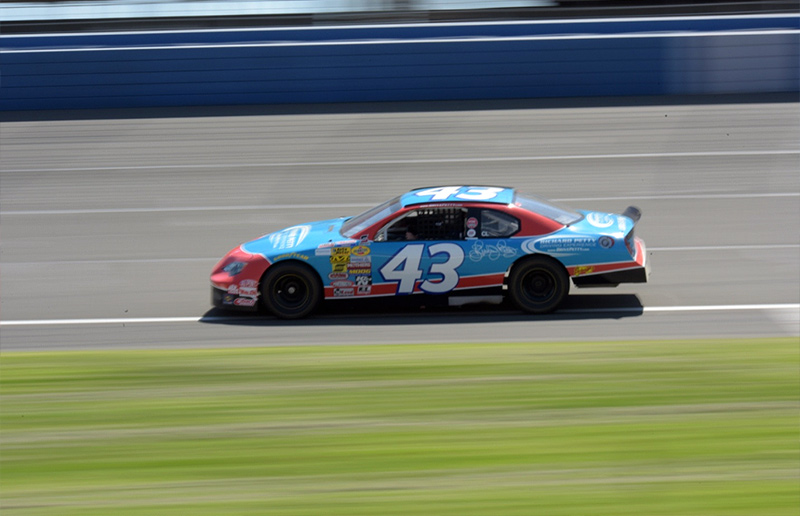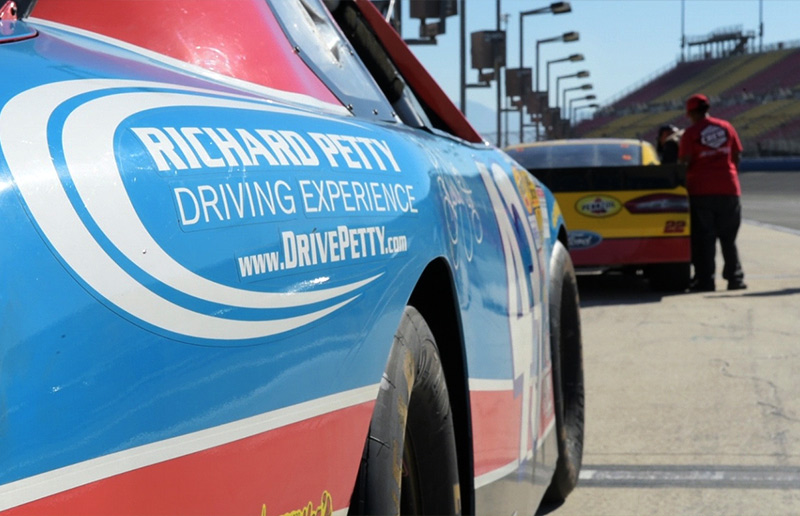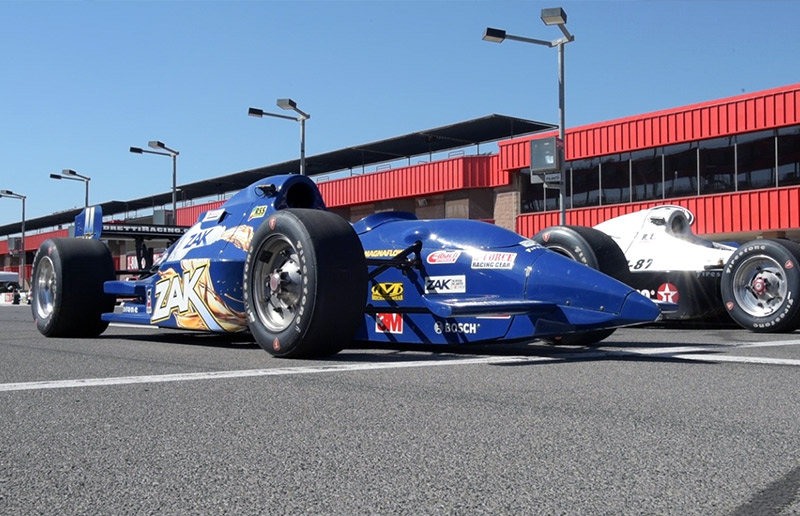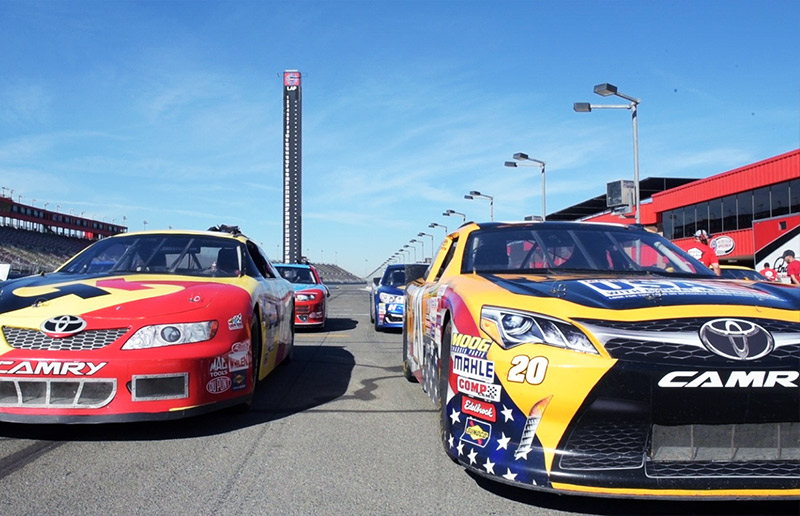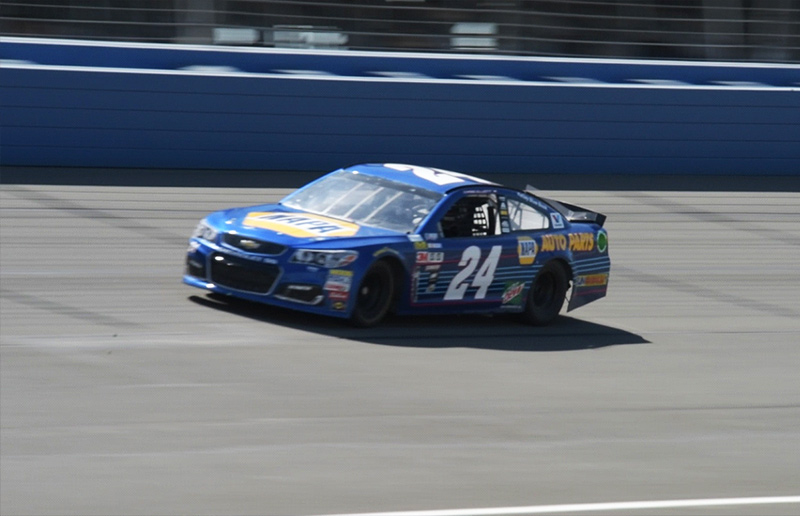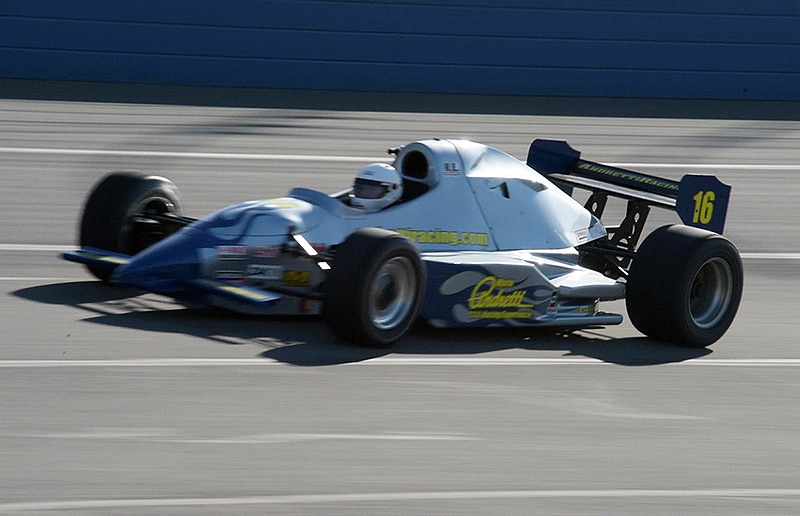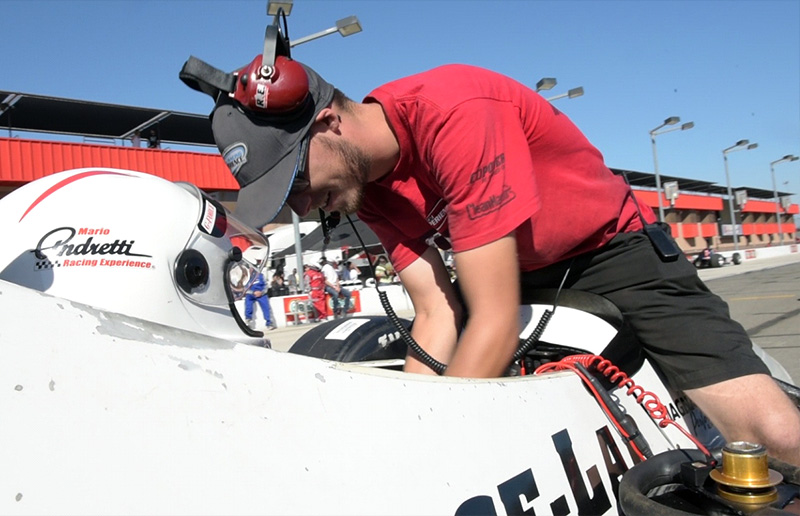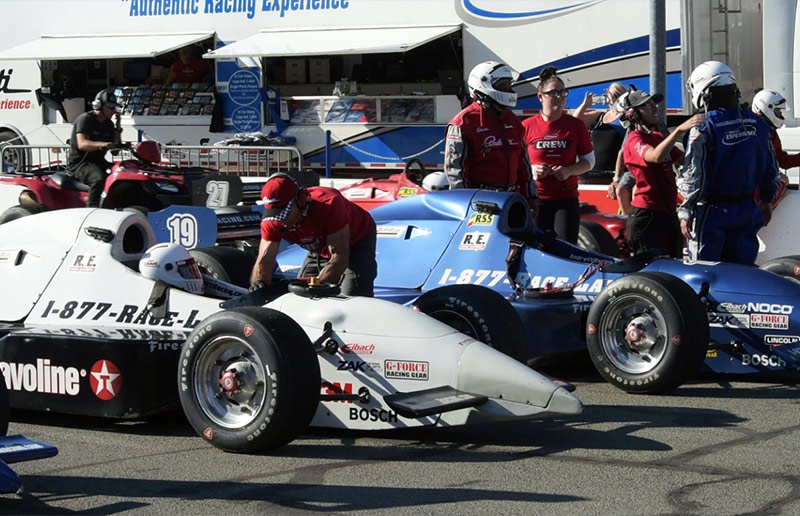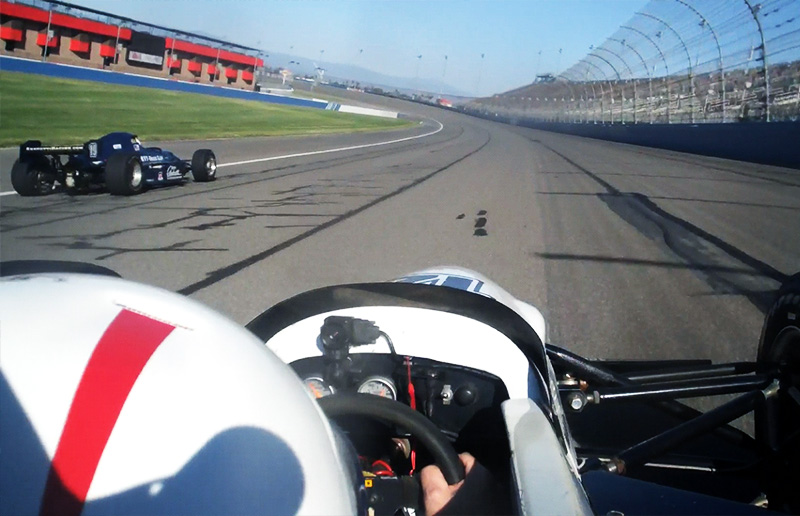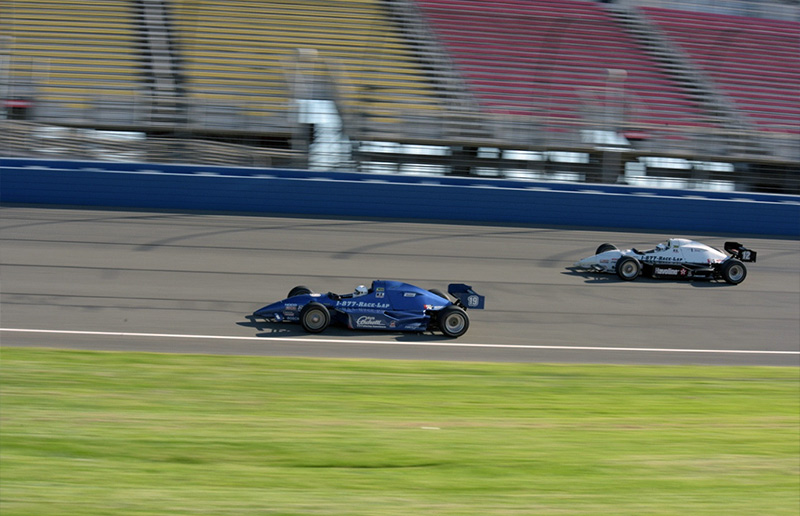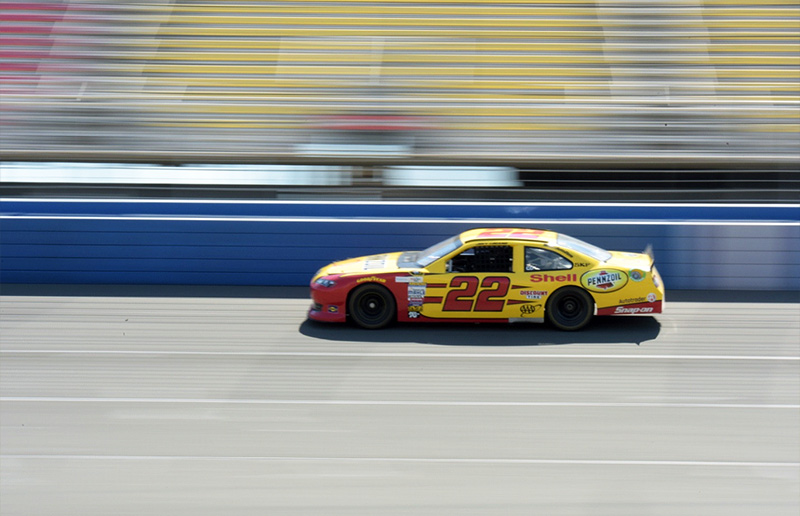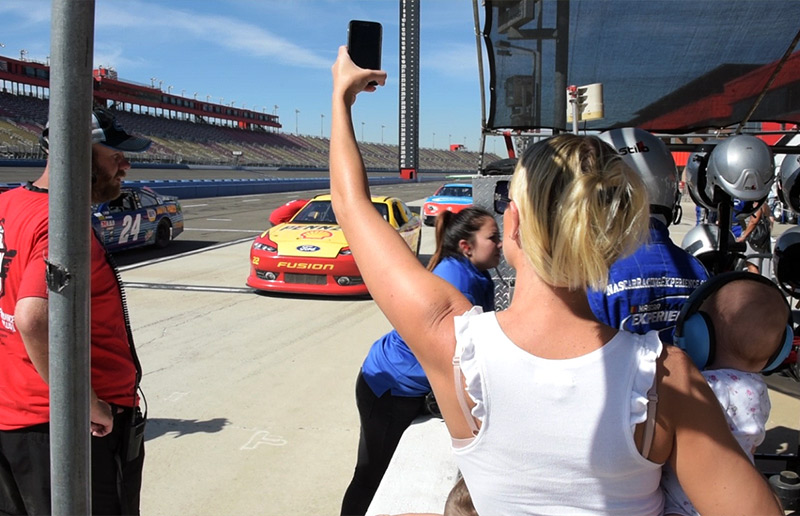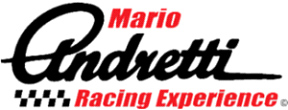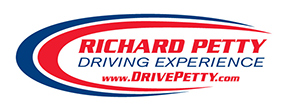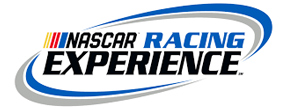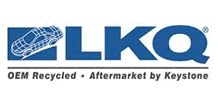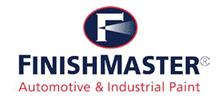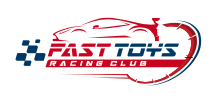From the spectator’s viewpoint in the grandstands or watching on the television, the speeds of NASCAR stock cars or IndyCar open-wheel cars on a speedway can be deceiving. When all the cars are consistently running similar speeds and running together, it can be easy to lose track of the fact that speeds approaching, or in excess of 200mph are very fast.
The NASCAR Racing and Mario Andretti Racing experiences operate at several tracks across the country to give fans a sense of oval racing at speed. The Speed Journal recently ventured to Auto Club Speedway in Fontana, California to give both experiences a try.
In the space of a few hours, the casual fan can graduate from the classroom to driving in excess of 150mph. Even better, both the stock car and open wheel experiences are operated by the same organization at the same track on the same day, so it is a great chance to compare and contrast both on the same visit.
The organizers offer several different versions of experiences depending on interest and budget. They range from a ride-along in the passenger seat with a professional driver at the controls, to track sessions of varying lengths. Two-seater open wheel cars are available for guests that wish to ride along with a professional driver rather than drive themselves. To be clear, this is not a racing school and not a test session. There is no wheel-to-wheel racing and no attempt to maximize absolute terminal velocity. This is an experience designed for someone who has curiosity, wants a glimpse of insight into what driving a race car on an oval track is all about, and have some fun doing it.
The experiences start with classroom time. The experiences are designed to be open for anyone, regardless of prior driving or racing experience. Discussions primarily focus on safety and driving lines. Once in the car, a two-way radio facilitates communication between driver and spotter. There are other cars on the track at the same time, so the spotter also works to ensure spacing between runners.
For both the stock car and open wheel car laps, the driver must demonstrate a degree of competence before the spotter will clear higher and higher speeds. Both cars also have rev limiters which limit top speed. Hitting the limiter also briefly interrupts the car’s momentum which can take a few seconds from which to recover. An unaware driver can cost themselves more momentum by staying on the rev limiter longer.
Speed Journal Principal Jeff Francis elected to take on both the NASCAR Racing and Mario Andretti Racing Experiences with a package of three 8-minute runs in each car. In between each run, the driver returns to pit lane for a break of about 8 minutes. The driver stays strapped in the car. In addition to the opportunity for additional coaching advice, the break is also an enforced time out to allow the brain to relax, digest the laps already run at speed, and refocus for the next session. The breaks also help to stretch out the thrills a bit to prevent the whole experience from passing too quickly.
The stock car experience was first. The big American V-8 engine provides 600 horsepower via a four-speed transmission. The stock cars are retired racecars, so they have the look and feel that you’d expect. Everything is big and roomy and loud. Looking around in the driver’s compartment, the racing seat, full racing cage, and radio button on the steering wheel make the car’s purpose clear. The car wears a colorful racing livery. All the features combine to feed the driver’s imagination that they are turning laps in a NASCAR race and make the experience more authentic.
Once through the gears and into top speed in fourth, it is hold your line and accelerate to max RPM’s. Spotters keep the higher line clear for professional drivers giving ride-alongs to other guests around the two-mile superspeedway at speed, so one must pay attention. Getting passed is usually not ideal on a race track, but having a front row seat to the stock cars and open wheel cars zipping past while running at 150mph only adds to the experience.
The big heavy stock car handles amazingly well but the other thing that is remarkable is the steepness of the banking. Eleven degrees on the straightaways and fourteen degrees in the corners is a lot more abrupt than television suggests. If you’re at a track and have the opportunity to walk on the banking, you’ll find quickly that even eleven degrees is quite a sharp gradient.
After the three sessions in the stock car were finished, it was time for the open wheel experience. The program is exactly the same. The track is the same. The instructors are the same. The big American V-8 powerplant is the same. That, however, is where the similarity ends.
The open wheel race car features an open cockpit exposed to the wind. The driver’s compartment is snug and purpose-built. A push start gets the car going, but once the driver dumps the clutch there is no more shifting. Just point the car, hit the gas, and hold on. With no shifting required, it is quite an experience to feel the speed relentlessly building as the engine pushes and pushes forward.
Compared to the stock car, the open wheel car is a much more visceral experience. The big front racing slicks dominate the view. The motor growls and sends vibrations through the chassis and the driver’s body. A small windscreen manages aerodynamics around the cockpit, but the driver still feels the wind buffeting their helmet. The driving position is very low slung. Rather than sitting upright and looking through a wide windshield, the driver in the open wheel car feels like they are sitting on the ground and peering just above the small windscreen.
The tiny steering wheel takes only minimal input to point the car. It feels like a nimble fighter jet after driving the large, lumbering stock car. Steering requires constant attention and a little muscle to manage the car smoothly through the turns.
At the end of the sessions, the speed tally was recorded. Francis recorded a top speed of 155.54mph in the stock car and 163.54mph in the open wheel car and received certificates for each to memorialize the occasion. The speeds are sufficient to require focus and attention and they’re fast enough to give a thrill.
The same organization runs both experiences and are prepared to work with all kinds of guests. They are friendly and welcoming. They want to get their guests up to speed quickly and safely and appear to get as much of a kick out of seeing big smiles on patron faces as the patrons themselves. In a matter of only hours, the casual fan goes from detached observer to experiencing a flavor of the thrill of action on the track. In addition to giving a better sense of what it is like behind the wheel and a greater measure of respect for those that race in competition, the experience is just a lot of fun.
The same program operates at 13 speedways across the country. Many different packages are available at all different price points depending on the amount of track time desired. Yes, the experiences make great gifts and gift certificates are available.
The Speed Journal would like to thank the Mario Andretti Racing Experience, and the NASCAR Racing Experience, and staff including shop and track manager Chris Daniel.
Special Thanks to:


